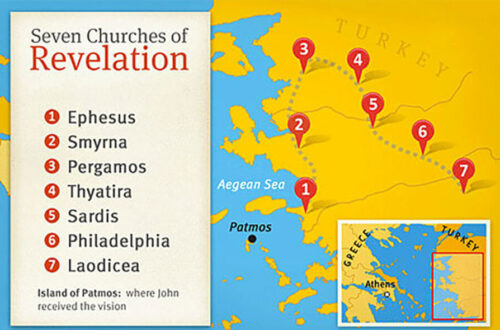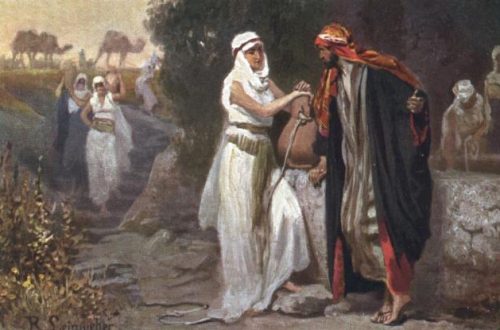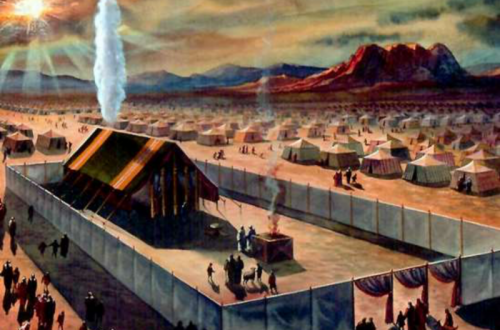-
A remarkable dream and a solemn vow
Genesis 28:10–19 is part of the lectionary readings for the seventh Sunday after Pentecost, which is July 19th. In 25:29–34, we learn how Esau bartered away his inheritance rights to Jacob. Sometime later, Jacob used blackmail and deceit to take Esau’s blessing from him (27:1–40). Officially, Jacob was now the more prominent of the two brothers, and Esau detested Jacob for it. Esau’s grudge was so intense that he wanted to kill Jacob. Esau knew he could never profit from murdering his fraternal twin while their father still lived. Esau guessed that Isaac would soon die (v. 2). In ancient times, it would be customary for the entire family to…
-
Abraham, characterized by unwavering obedience
Genesis 22:1–14 is part of the lectionary readings for the fourth Sunday after Pentecost, which is June 28th. In chapter 20, we see Abraham repeating a sin he had committed earlier (12:10–20). Specifically, after moving into the Negev (southern Israel), Abraham again identified Sarah as his sister in order to protect himself. Abimelech, the king of Gerar, took Sarah into his harem. Before long, God warned Abimelech to return Sarah to Abraham. For a second time, Abraham found himself reprimanded by a pagan king for lying. Yet, then Abimelech gave Abraham such material benefits as sheep, cattle, and slaves, along with clearing Sarah’s name (reputation). The stage was now set…
-
The God of the Impossible!
Genesis 17:15-17; 18:9-15; 21:1-7 Time: 2067–2066 b.c. Place: Canaan Lesson Aim: To learn that God can do what we consider impossible. Introduction Promises have fallen on hard times. Once, a person’s word was as certain a guarantee as you could get. Then spoken words became suspect, and the written contract was born. Now we’ve spurned even that symbol of trust. Today it seems there is no contract that can’t be broken in the name of more money, better business, or newer priorities. As it is commonly said, nothing’s ever an absolute guarantee—that is, except God’s Word. When the Lord made His promise to Abraham that Sarah would…
-
Jacob’s dream at Bethel
Title: Jacob’s dream at Bethel Aim: To recognize that God is always with us, even in life’s seemingly darkest, fear-inducing moments. Scripture: Genesis 28:10–22 Jacob’s remarkable dream: Genesis 28:10-15 We learned last week how Esau bartered away his inheritance rights to Jacob (Gen. 25:29-34). Sometime later, Jacob used blackmail and deceit to take Esau’s blessing from him (27:1-40). Officially, Jacob was now the more prominent of the two brothers, and Esau detested Jacob for it. Esau’s grudge was so intense that he wanted to kill Jacob. Esau knew he could never profit from murdering his fraternal twin while their father still lived. Esau guessed that Isaac…
-
Jacob and Esau as rivals
Title: Jacob and Esau as rivals Aim: To highlight the importance of making the things of God, not the things of the world, our highest priority. Scripture: Genesis 25:19–34 The Birth of Esau and Jacob, Genesis 25:19-26 As Genesis 25:19 and 20 state, Abraham was the father of Isaac, who was 40 years old when he married Rebekah. Genesis 24 (the longest chapter in the book) records how Abraham’s chief servant found Rebekah as a wife for Isaac. As the daughter of Bethuel, Rebekah was a near relative of Abraham’s family. The text says that Bethuel was an Aramean from Paddan Aram (Deut. 26:5), which means “Plain…
-
Abraham, characterized by unwavering obedience
Title: Abraham, characterized by unwavering obedience Aim: To encourage trusting God through life’s tests. Scripture: Genesis 22:1–19 God’s stark command to Abraham, Genesis 22:1–2 In Genesis 20, we see Abraham repeating a sin he had committed earlier (12:10-20). Specifically, after moving into the Negev, Abraham again identified Sarah as his sister in order to protect himself. Abimelech, the king of Gerar, took Sarah into his harem. Before long, God warned Abimelech to return Sarah to Abraham. For a second time, Abraham found himself reprimanded by a pagan king for lying. Yet, then Abimelech gave Abraham such material benefits as sheep, cattle, and slaves, along with clearing…
-
Abraham, characterized by unwavering obedience
Title: Abraham, characterized by unwavering obedience Aim: To encourage trusting God through life’s tests. Scripture: Genesis 22:1–19 God’s stark command to Abraham, Genesis 22:1–2 In Genesis 20, we see Abraham repeating a sin he had committed earlier (12:10-20). Specifically, after moving into the Negev, Abraham again identified Sarah as his sister in order to protect himself. Abimelech, the king of Gerar, took Sarah into his harem. Before long, God warned Abimelech to return Sarah to Abraham. For a second time, Abraham found himself reprimanded by a pagan king for lying. Yet, then Abimelech gave Abraham such material benefits as sheep, cattle, and slaves, along with clearing…
















